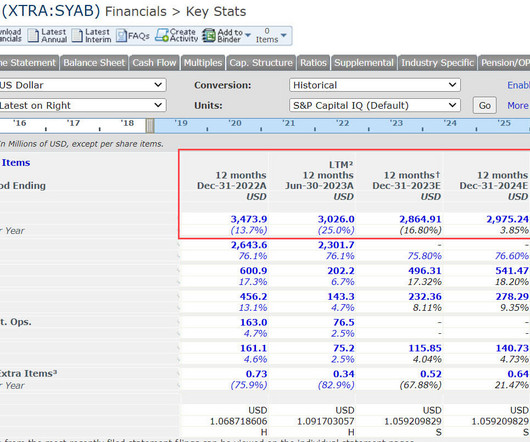Capital Markets vs. Investment Banking: Deals, Careers, Recruiting, Exits, and Offer Decisions
Mergers and Inquisitions
OCTOBER 18, 2023
Investment Banking: Deals The basic difference is that in “investment banking” groups, such as technology , TMT , healthcare , or consumer retail , you work on various deal types: sell-side and buy-side M&A, leveraged buyouts, IPOs, follow-on offerings, and bond issuances. or debt offerings (investment-grade or high-yield bonds).












Let's personalize your content